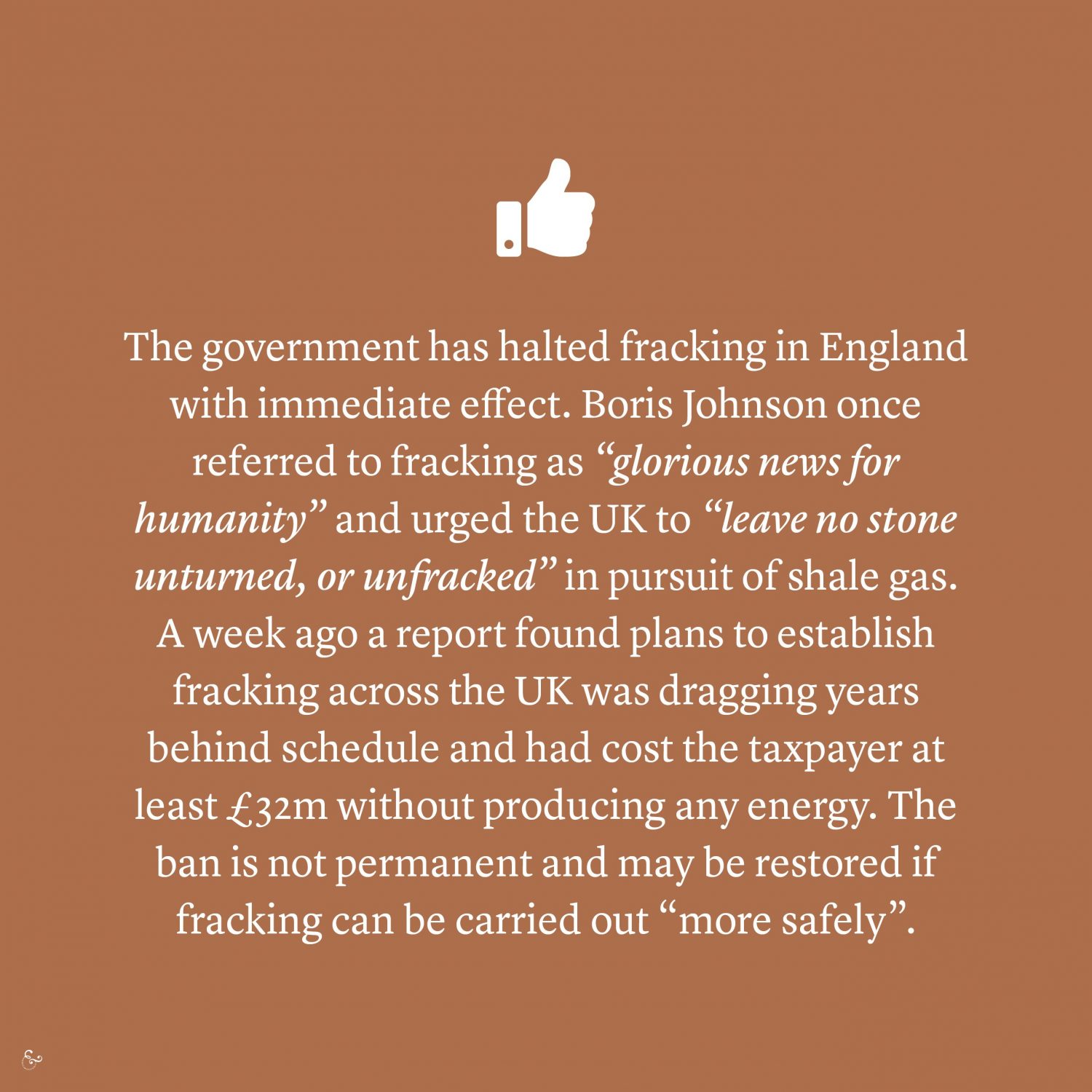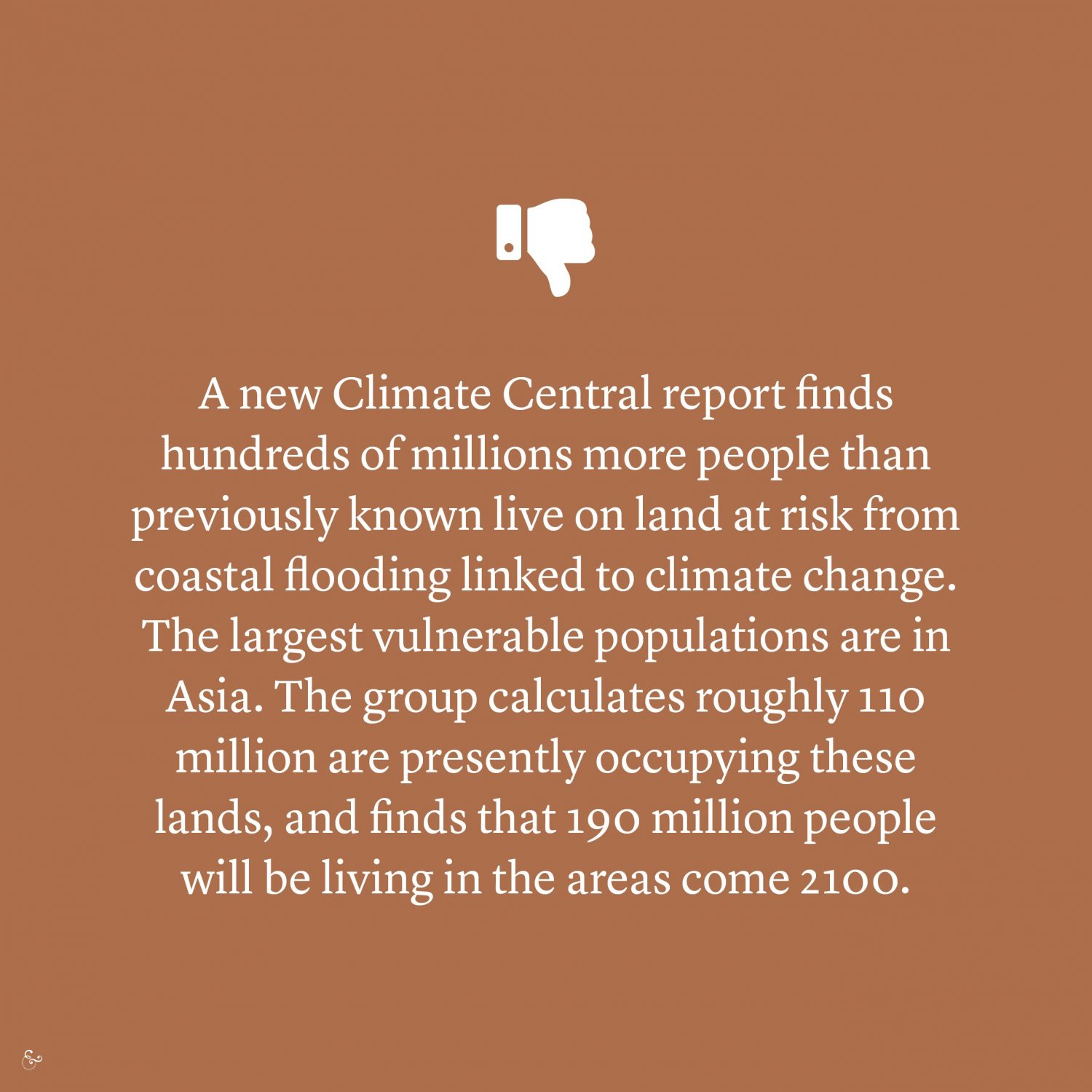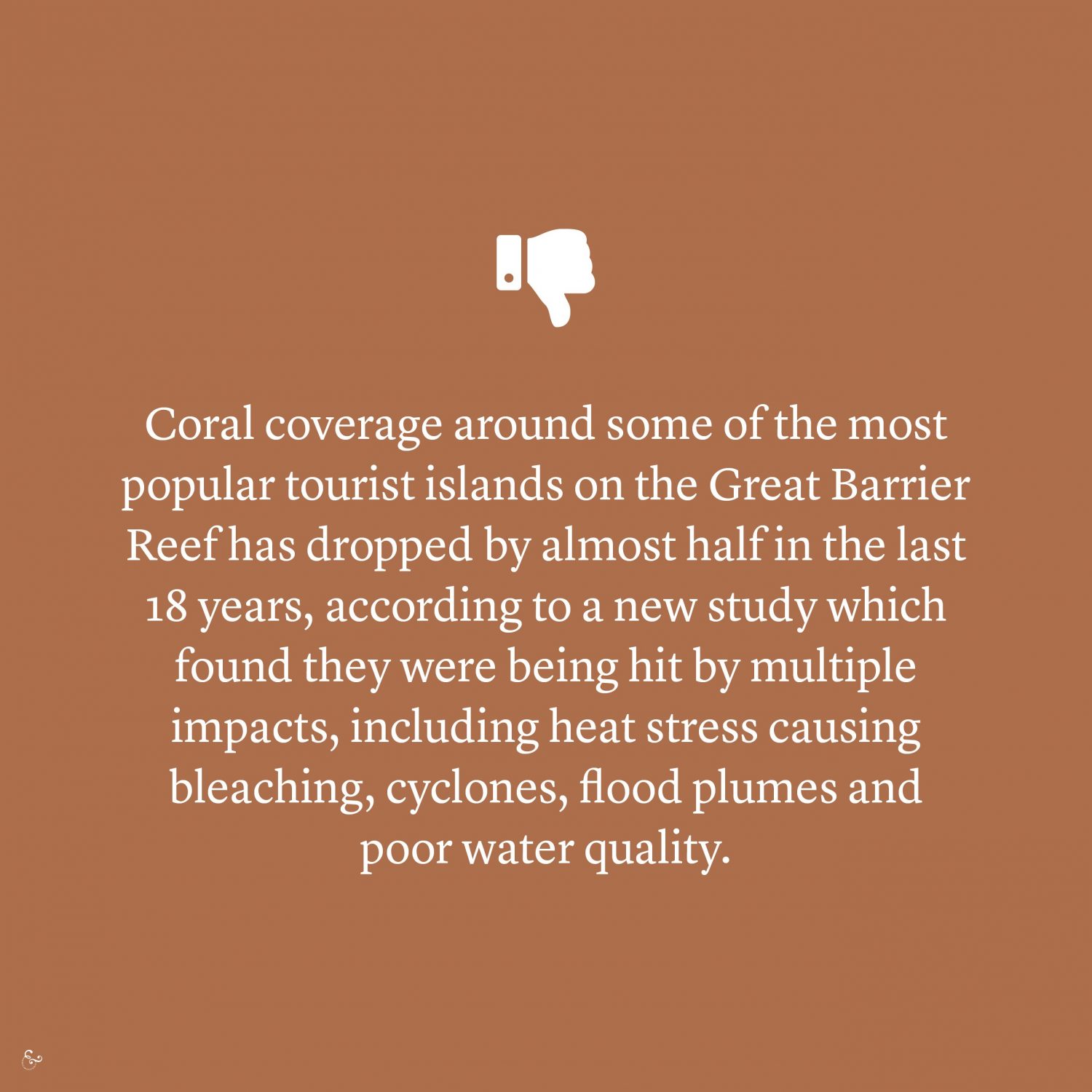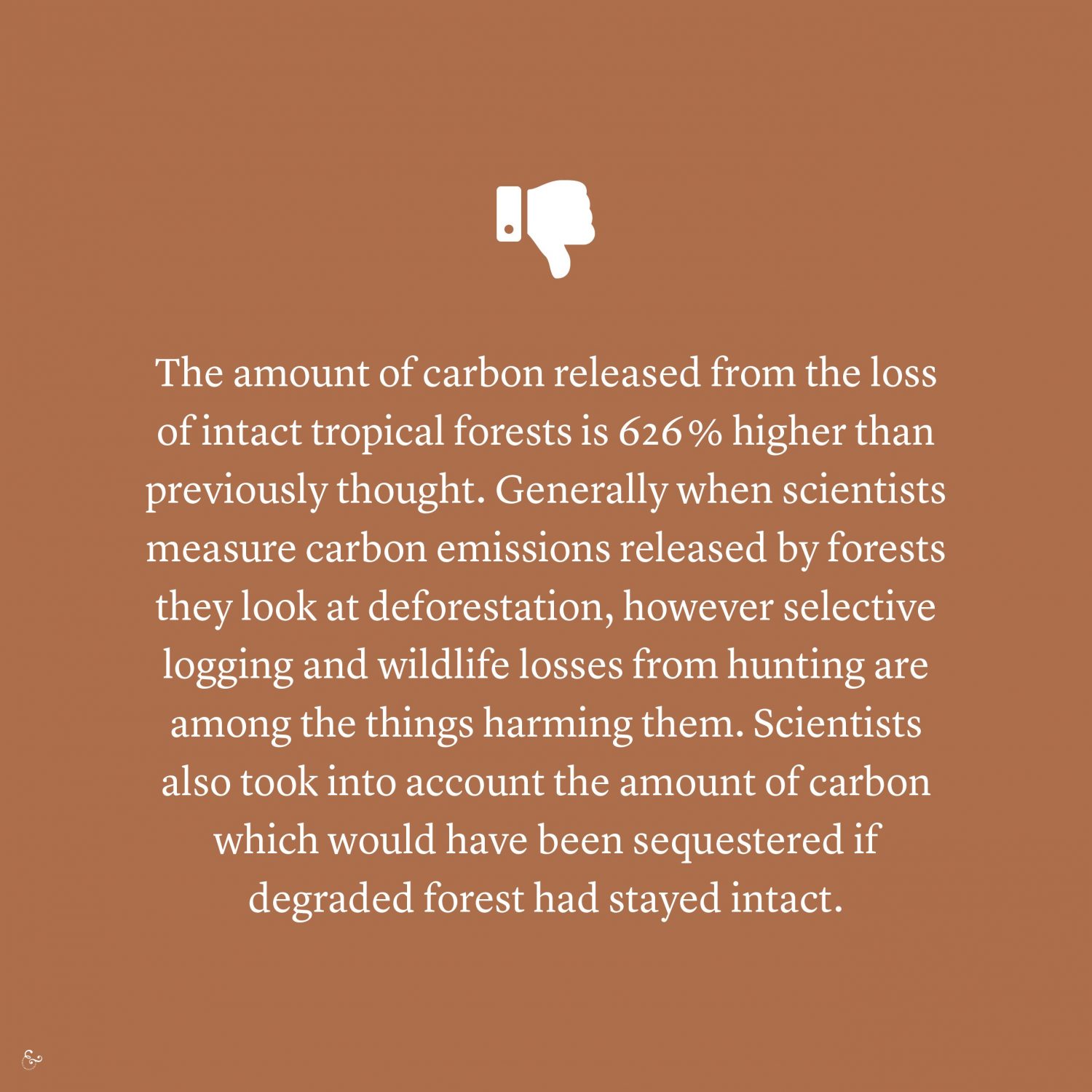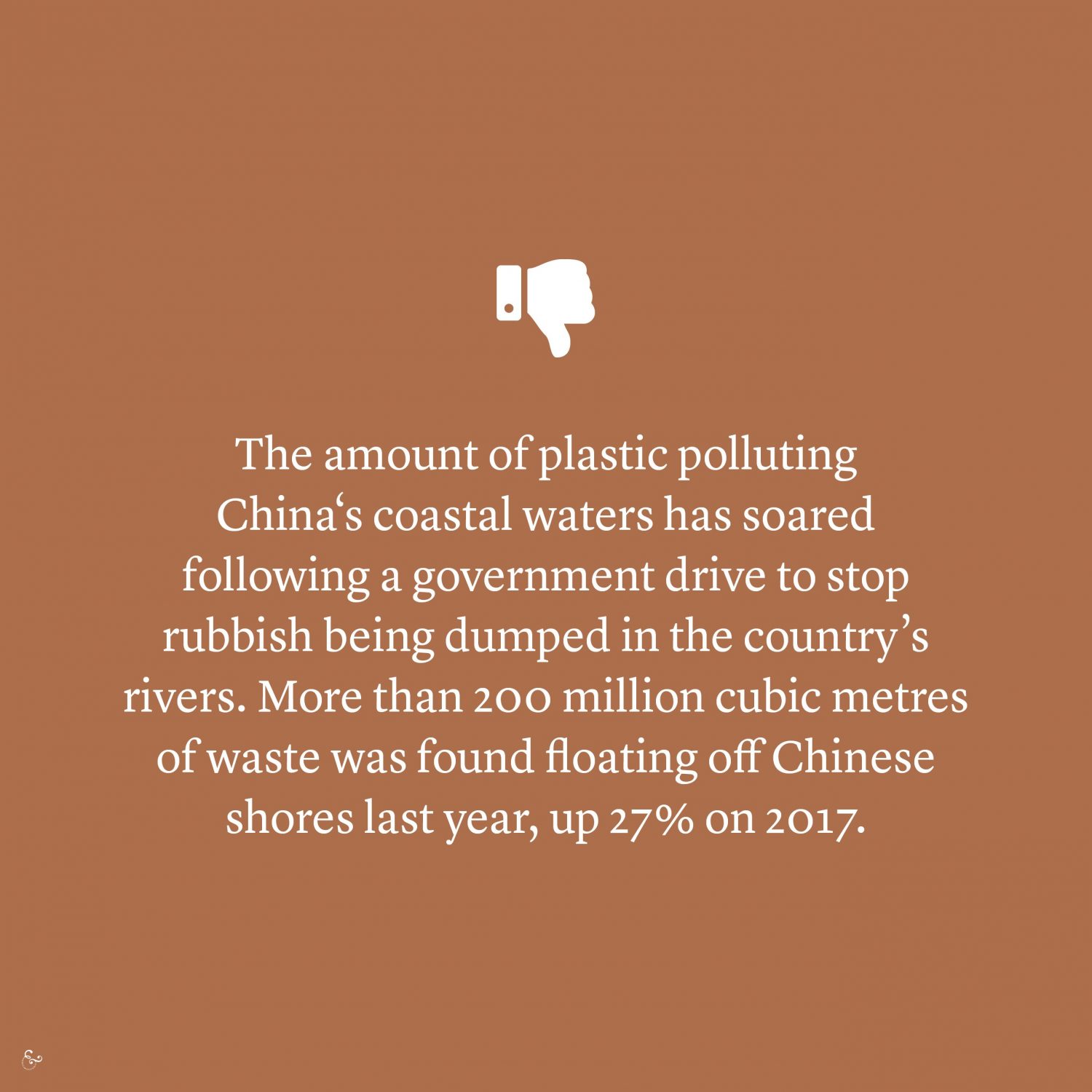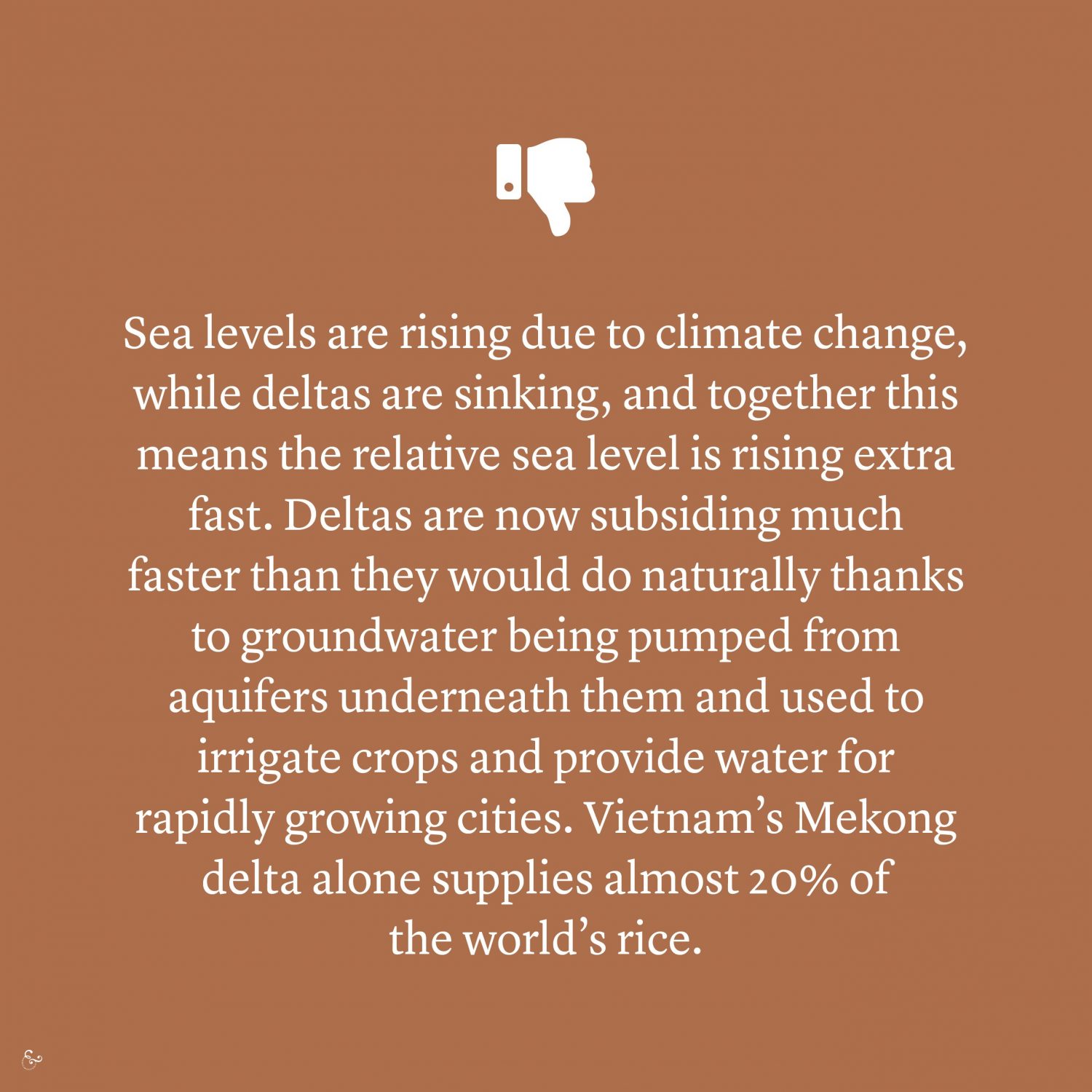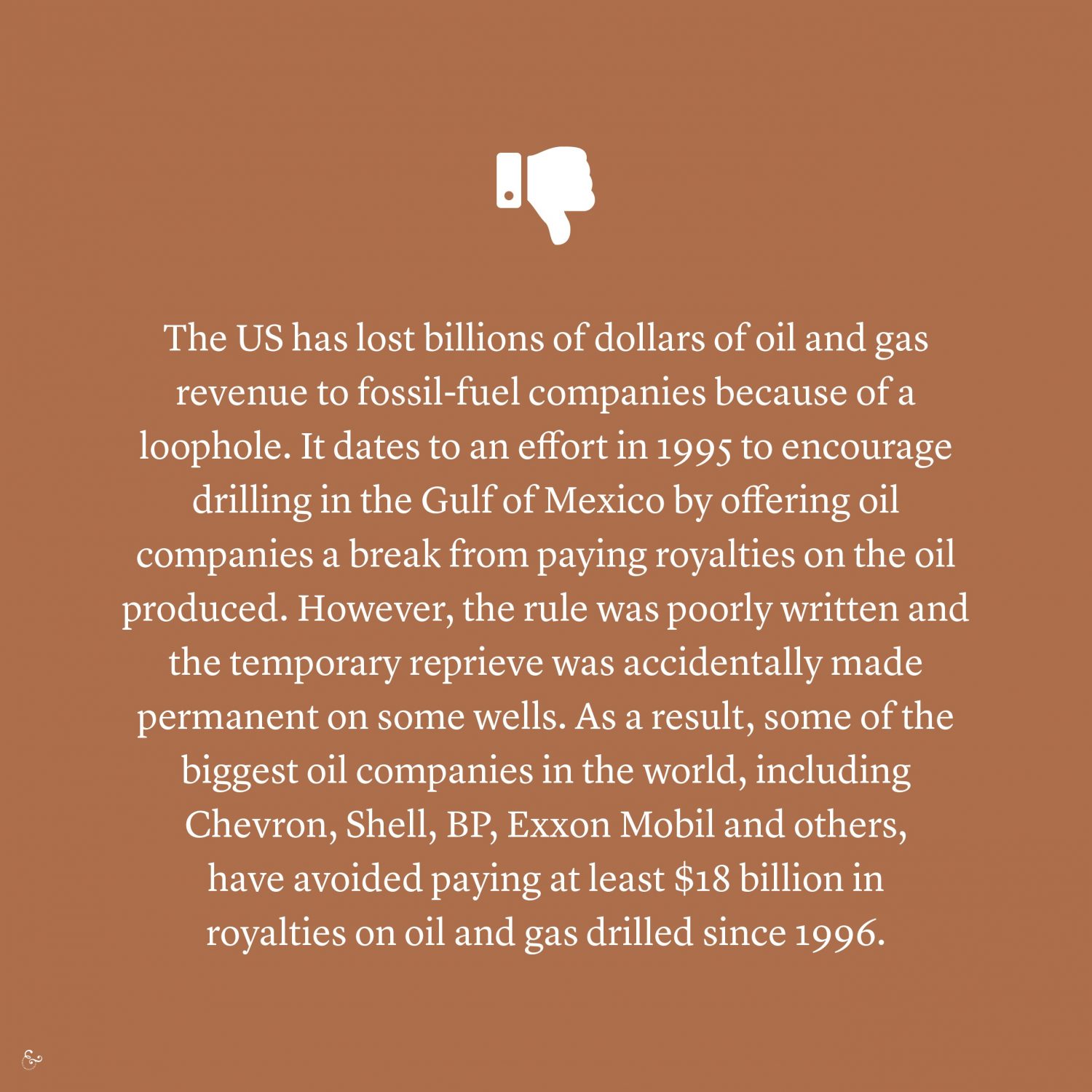Australia / Climate Change
1/ Coral coverage around some of the most popular tourist islands on the Great Barrier Reef has dropped by almost half in the last 18 years, according to a new study which found they were being hit by multiple impacts, including heat stress causing bleaching, cyclones, flood plumes and poor water quality. The loss of hard corals was between 40 and 50% at each island group. (The Guardian)
USA / Climate Change
2/ The United States has lost billions of dollars of oil and gas revenue to fossil-fuel companies because of a loophole in a decades-old law. The loophole dates from an effort in 1995 to encourage drilling in the Gulf of Mexico by offering oil companies a temporary break from paying royalties on the oil produced. However, the rule was poorly written and the temporary reprieve was accidentally made permanent on some wells. As a result, some of the biggest oil companies in the world, including Chevron, Shell, BP, Exxon Mobil and others, have avoided paying at least $18 billion in royalties on oil and gas drilled since 1996, according to a new report. (NYT)
USA / Climate Change
3/ Even more wildfires have ignited in California this week, amid high winds and dry weather, despite massive ongoing firefighting efforts and power shutoffs to hundreds of thousands of customers throughout the state in hopes of preventing an ignition. All this is happening after three straight years of record-breaking fires that researchers say are likely to continue in a warming world. (NYT / Vox)
World / Climate Change
4/ A new report from the Coalition for Urban Transitions finds that, because sea level rise exacerbates flooding and storm surge, it is a critical threat to urban coastal areas. More than 10 percent of the world’s population now resides in urban centers or quasi-urban clusters situated at less than 10 meters above sea level. Also a new Climate Central research report released this week finds hundreds of millions more people than previously known live on land at risk from coastal flooding linked to climate change. The largest vulnerable populations are most heavily in Asia. Today, the group calculates roughly 110 million are presently occupying these lands, protected by walls, levees, and other coastal defences. It finds that 190 million people will be living in the areas come 2100. (Phys / BBC / Forbes)
World / Deforestation
5/ The amount of carbon released from the loss of intact tropical forests is 626 per cent higher than previously thought, a new study has found. Generally when scientists measure carbon emissions released by forests they look at deforestation, however this is only part of the story. Selective logging which damages the overall health of forests and wildlife losses from hunting are among the things harming them. Scientists also took into account the amount of carbon which would have been sequestered if degraded forest had stayed intact. (Science Advances / Independent)
China / Plastics
6/ The amount of plastic polluting China‘s coastal waters has soared following a government drive to stop rubbish being dumped in the country’s rivers. More than 200 million cubic metres of waste was found floating off Chinese shores last year, up 27 per cent on 2017, according to the environment ministry. Debris in the country’s seas has hit the highest level in a decade, with plastic accounting for the vast majority of the rubbish. (Independent)
World / Environment
7/ The world’s river deltas take up less than 0.5% of the global land area, but they are home to hundreds of millions of people. With fertile soils and easy access to the coast, deltas are critical hotspots of food production. Vietnam’s Mekong delta alone supplies almost 20% of the world’s rice. Sea levels are rising as a result of climate change, while deltas are themselves sinking, and together this means the relative sea level is rising extra fast. Deltas are now subsiding much faster than they would do naturally thanks to groundwater being pumped from aquifers underneath them and used to irrigate crops and provide water for rapidly growing cities. (ERL / The Conversation)
The good news…
World / Climate Change
8/ The government has halted fracking in England with immediate effect in a watershed moment for environmentalists and community activists. Ministers also warned shale gas companies it would not support future fracking projects. Boris Johnson, who once referred to fracking as “glorious news for humanity” and urged the UK to “leave no stone unturned, or unfracked” in pursuit of shale gas. A week ago a damning report from Whitehall’s spending watchdog found its plans to establish fracking across the UK was dragging years behind schedule and had cost the taxpayer at least £32m so far without producing any energy in return. The ban is not permanent and may be restored if fracking can be carried out more safely. (The Guardian / The Guardian 2 /
Other notables…
- Australia’s peak water market body says it expects to see South Australian prices skyrocket to Millennium Drought levels, causing further anxiety in farming communities. (ABC)
- Several thousand tonnes of dead fish have been illegally discarded by trawlers in the North Sea and west coast of Scotland this year, a Freedom of Information request has revealed. Data showed that more than 2,600 tonnes of unwanted cod, haddock, whiting and saithe were estimated to have been caught in scampi fisheries in the first three months of this year. This will result in the waste of around 10,500 tonnes of dead fish by the end of 2019. (Independent)
- Uluru, a sacred Indigenous site in Australia finally closed for climbing to the public after decades of calls by First Nations people. (ABC)
- Shorebirds are fighting for their lives in Australia, as the nation’s wetlands and coastal estuaries continue to be swallowed by development. (ABC)
- Doubts are growing about the future protection of the UK’s environment following Brexit. At the moment Britain’s standards on water, air, waste and wildlife are enforced by the EU. (BBC)
- Almost 8,000 new private jets are expected to be bought by multinational companies and the super-rich over the next decade, each of which will burn 40 times as much carbon per passenger as regular commercial flights, according to a report by aviation firm Honeywell Aerospace. (The Guardian)
- More than 240 conservation scientists sign open letter to Australian PM warning that 17 native species face extinction in next 20 years. More than 1,800 Australian plants and animals are formally listed as threatened with extinction, but the scientists say this is an underestimate. Environmental protections have been consistently wound back over the past decade, most often by conservative governments. (The Guardian)
- There is proof of whales and dolphins in the Great Pacific Garbage Patch, which means it’s highly likely they are eating or getting tangled in the huge amount of plastic in the area. (The Conversation)
- Flying foxes are experiencing an acute food shortage across south-eastern Australia. (ABC)
- Overseas consumer markets could be responsible for more than half of the impact of expanding soy production on rare species in one of the world’s most biodiverse regions, the Cerrado savannah in Brazil, according to a new article in PNAS. The Cerrado is home to 5% of the world’s species, but the wilderness is being converted rapidly, particularly for agriculture. (PNAS)
- Chile’s announcement sent the United Nations scrambling Wednesday to secure a new location for the highly choreographed gathering of the world’s leaders. The debacle also raised an unsettling question: If unrest is already destabilizing middle-income countries, how will the world work together in the decades to come as the effects of climate change worsen? (Huffington Post / BBC)
- Climate change could turn the Garden of England into a “parched grassland” that is unable to support crops, according to a new study. If emissions continue at current rates, Britain will be 5C warmer by the end of the century, and would experience up to 140mm less rainfall during the growing season. (ERL / Independent)
- Climate change is disrupting the rhythms of spring river flooding across Europe which could consequently pose new problems for biodiversity and food security. (Environment Journal)
- There are major gaps in how food waste in tourism is understood and calculated, according to researchers at the University of Eastern Finland and the University of Southern California. Food waste originating from hotels, restaurants and events is recognised and can be estimated and calculated, but as the tourism industry is becoming more and more diverse, so are the sources of its food waste. (Phys)
- It is thought Argentina could fill the void left by China’s decision to stop accepting all but the easiest-to-recycle plastics from the US, the UK and Europe. (The Guardian)
- As global warming brings wilder weather, more harvest failures and the risk of growing migration and poverty, “sustainable development as we think of it today may be out of reach”, a top U.N. specialist in climate change losses warned. (Eco Business)
- A new camera trap study finds that tigers vanished from Nam Et-Phou Louey National Protected Area by 2014, their last stand in Laos. Scientists believe it’s most likely that the last tigers and leopards of Laos succumbed to snares. With the loss of tigers in Laos’s largest protected area, the tiger is most likely extinct in Laos, as it probably is in both Cambodia and Vietnam. (Mongabay)

